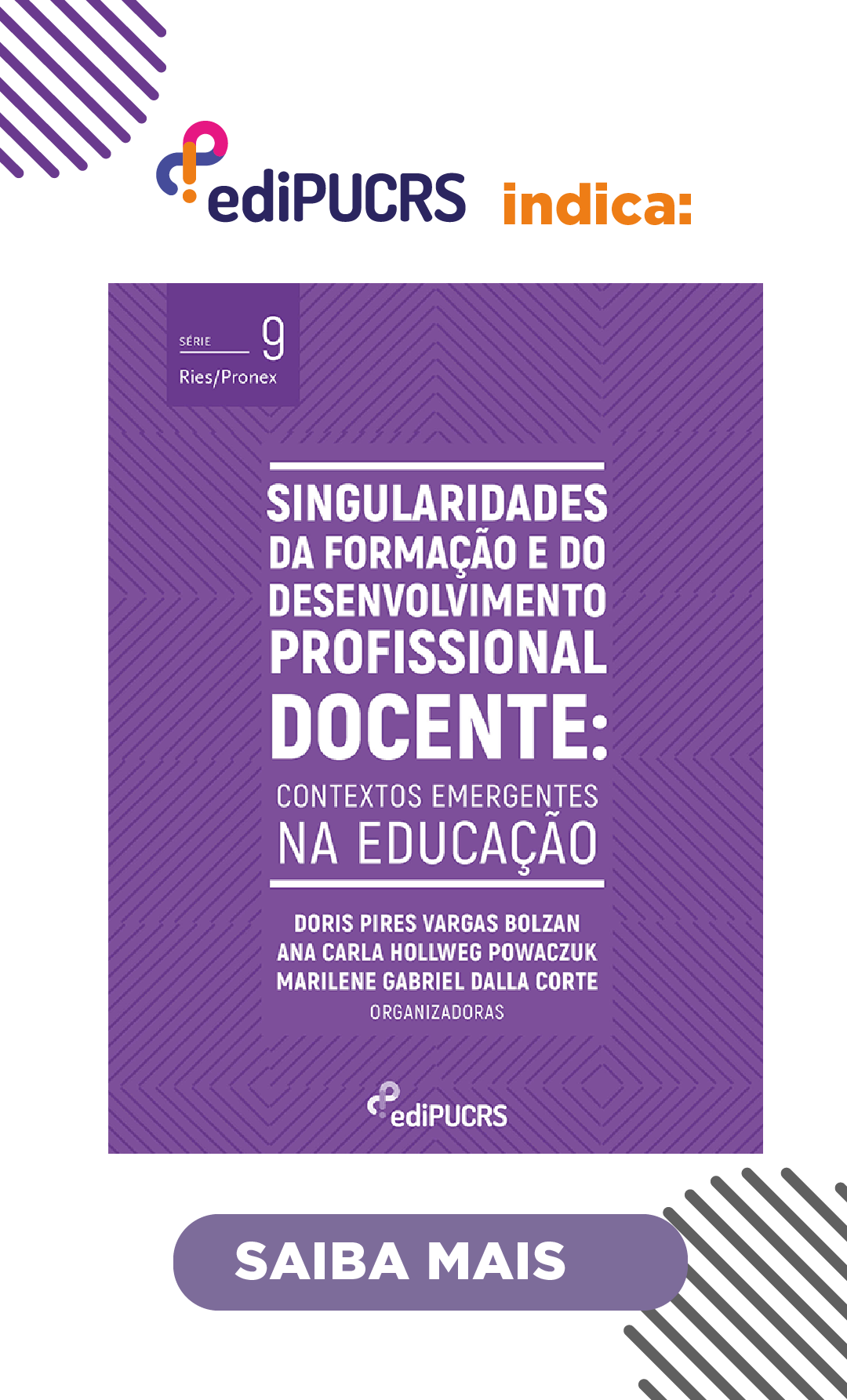The problem solving as interdisciplinary practice in education: an epistemetodological proposal
DOI:
https://doi.org/10.15448/2179-8435.1.28485Keywords:
Interdisciplinarity, Education, Method, EpistemologyAbstract
The purpose of our text is to present problem solving as a possibility of interdisciplinary practice from an epistemetodological conception, seeking think methodological alternatives that make possible the interdisciplinary experimentation in the school / academic context. The provocative and guiding question of our study was: the epistemological-methodological conception of problem solving is a promising alternative for the construction of interdisciplinary practices in education? Our study consisted of a bibliographical and exploratory research. Methodologically it consists of a theoretical analysis anchored in the analytical-hermeneutical method, oriented epistemologically by a rationalist perspective, taken in its critical-analytical positioning and complexity focus. In the first part of the text we present the epistemological conception of Popper (2013; 2008; 2004; 1975) anchored in the proposed method of conjectures and refutations consisting in the creation and resolution of problems, from which it is possible the construction and reconstruction of knowledge; and in the second part we present the epistemetodological proposal of the placement and resolution of problems as a possibility of interdisciplinary practice in the teaching processes and learning, supported by Pozo (2008) and Sommermman (2015). Our conclusion is that the epistemetodological proposal of problem solving is a promising alternative for the construction of interdisciplinary practices in education, due to the creative potential, however, does not consist in the acquisition of tools and procedures capable of generating solutions when applied in themselves and by themselves, since as a method it must be associated to the learning contents.
Downloads
References
ABBAGNANO, N. Dicionário de filosofia. 5. ed. São Paulo: Martins Fontes, 2007.
BACHELARD, G. O racionalismo aplicado. Rio de Janeiro: Zahar Editores, 1977.
BACHELARD, G. A formação do espírito científico: contribuições para uma psicanálise do conhecimento. Rio de Janeiro: Contraponto, 1996.
BECKER, F. A epistemologia do professor: o cotidiano da escola. Petrópolis: Vozes, 1993.
CASTILLO, J. D. A solução de problemas nos estudos sociais. In: POZO, J. I.; (Org.). A solução de problemas: aprender a resolver, resolver para aprender. Porto Alegre: Artmed, 1998, p. 103-137.
ECHEVERRÍA, M. D. P. P.; POZO, J. I. Aprender a resolver problemas e resolver problemas para aprender. In: POZO, J. I.; (Org.). A solução de problemas: aprender a resolver, resolver para aprender. Porto Alegre: Artmed, 1998. p. 13-41.
POPPER, K. R. Conhecimento objetivo: uma abordagem evolucionária. Belo Horizonte: Itatiaia: São Paulo Editora da Universidade de São Paulo, 1975.
POPPER, K. R. A lógica das ciências sociais. 3. ed. Rio de Janeiro: Tempo Brasileiro, 2004.
POPPER, K. R. Conjecturas e refutações: o progresso do conhecimento científico. 5. ed. Brasília: Editora da Universidade de Brasília, 2008.
POPPER, K. R. A lógica da pesquisa científica. 2. ed. São Paulo: Cultrix, 2013.
POZO, J. I. A solução de problemas: aprender a resolver, resolver para aprender. Porto Alegre: Artmed, 1998.
POZO, J. I.; GOMÉZ CRESPO, M. A. A solução de problemas nas ciências da natureza. In: POZO, J. I.; (Org.). A solução de problemas: aprender a resolver, resolver para aprender. Porto Alegre: Artmed, 1998. p. 67-98.
SOMMERMAN, A. Objeto, método e finalidade da interdisciplinaridade. In: PHILIPPI JR., A.; FERNANDES, V.; (Org.). Práticas da interdisciplinaridade no ensino e na pesquisa. Barueri/SP: Manole, 2015. p. 165-212.
TELLO, C. Las epistemologias de la política educativa: vigilancia y posicionamento epistemológico del investigador en política educativa. Práxis Educativa, Ponta Grossa, v. 7, n. 1, p. 53-66, jan.-jun. 2012.
Downloads
Published
How to Cite
Issue
Section
License
Copyright
The submission of originals to Educação Por Escrito implies the transfer by the authors of the right for publication. Authors retain copyright and grant the journal right of first publication. If the authors wish to include the same data into another publication, they must cite Educação Por Escrito as the site of original publication.
Creative Commons License
Except where otherwise specified, material published in this journal is licensed under a Creative Commons Attribution 4.0 International license, which allows unrestricted use, distribution and reproduction in any medium, provided the original publication is correctly cited.





